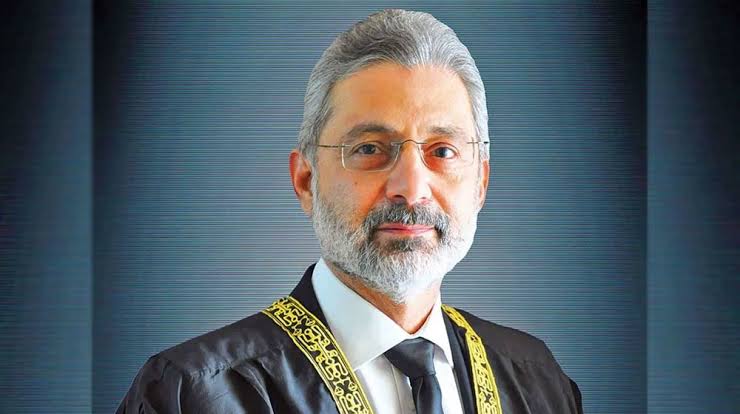Chief Justice of Pakistan (CJP) Qazi Faez Isa has responded strongly to allegations of interference by intelligence agencies in judicial affairs, stating unequivocally that any meddling by the executive in the judicial workings of judges will not be tolerated. This came after six judges of the Islamabad High Court (IHC) sent a letter to the Supreme Judicial Council (SJC) seeking guidance on dealing with such interference.
Following the receipt of the letter on March 26, CJP Isa held a full court meeting with all the judges of the IHC to address their concerns individually. The meeting lasted for over two and a half hours, during which the gravity of the situation was thoroughly discussed.
On March 27, CJP Isa met with the Attorney General and the Law Minister, followed by a meeting with representatives from the legal fraternity. Subsequently, a full court meeting of all Supreme Court judges was convened to deliberate on the issues raised in the IHC judges’ letter. It was unanimously agreed that the CJP would meet with the Prime Minister to discuss the matter further.
On March 28, Prime Minister Shehbaz Sharif, accompanied by the Law Minister and the Attorney General, met with CJP Isa and other senior judges. During the hour and a half-long meeting, CJP Isa emphasized that judicial independence is non-negotiable and assured that any interference by the executive would not be tolerated.
To address the situation, it was proposed to form an inquiry commission headed by a retired judge of impeccable integrity under the Pakistan Commissions of Inquiry Act, 2017. Prime Minister Shehbaz Sharif agreed to convene a meeting of the federal cabinet to seek approval for the establishment of the commission.
Additionally, the Prime Minister pledged to take further measures to ensure an independent judiciary, including issuing directions to relevant departments and initiating legislation in accordance with the Faizabad Dharna judgment.
Following the meeting with the Prime Minister, CJP Isa briefed all judges on the discussions held, ensuring transparency and collective understanding of the steps taken to address the issue.










